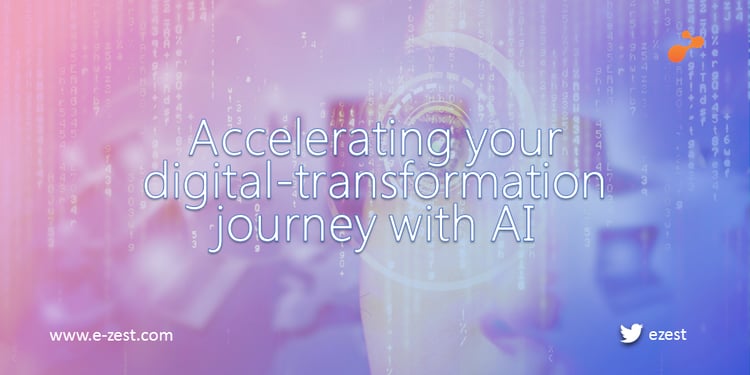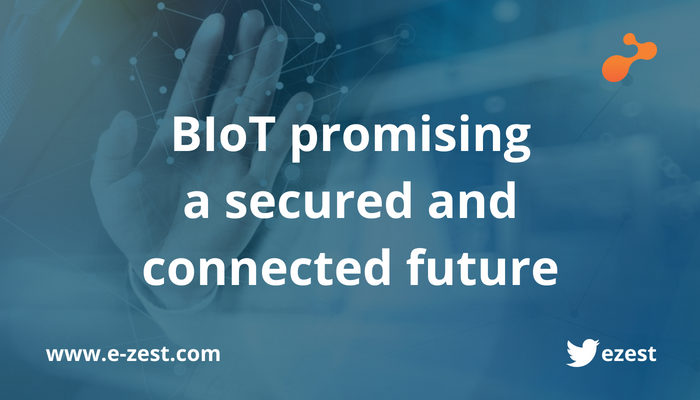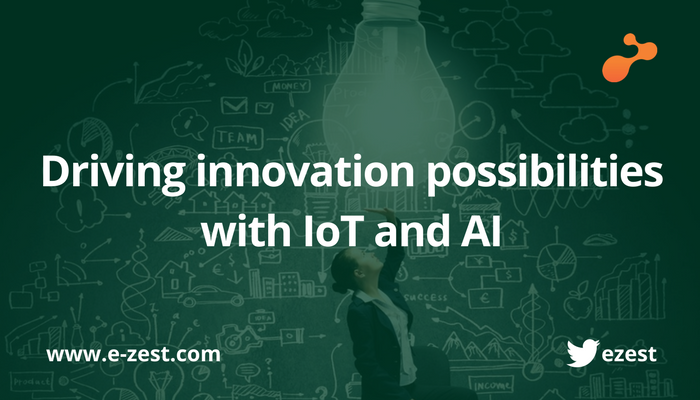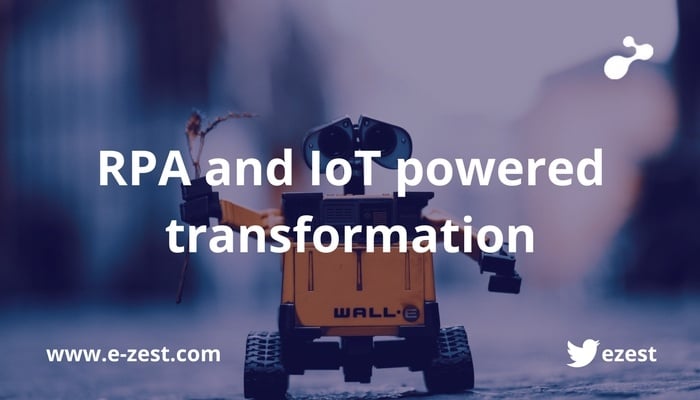
The momentum in digital innovation in today's digital game is seen coming not only from newcomers born in digital era but also from the traditional biggies - read Tesco, GE and Amazon of the world. Large enterprises are making a conscious push to transform themselves from digital followers to digital transformers. For business leaders, the coming years will be only about determining the right technologies to keep their place in the digital world. AI is that one technology which is catching the attention like wild fire.
In my previous blog, I spoke about the opportunities of AI and why business leaders should be paying attention to AI. Here in this blog, I will talk about the ways artificial intelligence can drive innovation and add real value for companies. Of course, the biggest threat many see is lack of necessary regulations. That addressed, there's a lot of potential to bring revolutionary changes in the way we work and even live.
How to accelerate your digital-transformation journey with AI?
Intelligent infrastructure
The physical world is becoming more and more digital as objects, devices and machines acquire more digital intelligence. What’s emerging as commonly called as Internet of “things”—is a new layer of connected intelligence that augments the actions of individuals, automates processes and incorporates digitally powered machines, increasing our insight into—and power over—the tangible world.
Productivity systems
Systems will get better at combining and analyzing the relevant data to optimize the experience in every situation. Productivity systems will get sharper as supporting systems for the decision process.
Experts predict that machine learning and artificial intelligence will create productivity tools that can schedule meetings and tasks for you based on your context - where you are and what needs to be done.
Enterprise chatbots
A new wave of AI assisted services is entering the center stage changing the way we work, communicate and interact with our electronic devices. AI is transforming text-based to voice-activated chatbots enabling organizations build more integrated customer experience offering intimacy and personalization. This new level of personalization is enhancing machine-to-machine interaction making multitude of tasks simpler. This impacts not only consumers' interaction with brands but also the future of e-commerce and home devices.
AI-powered automation
Automation will change the daily work activities of everyone, from floor workers working in various industries to commercial bankers and CEOs. Automation technologies have even become a reality in the workplace with a few companies starting to execute their impact on employee productivity.
The automation of these activities will enable businesses to improve performance by reducing errors and improving speed, and in some cases achieving outcomes those were considered almost impossible to achieve.
Smarter apps that know you
There is a good reason why Google spent years researching ways to turn data into positive user experience. The information you see on your browser changes every time depending on your browsing history, location, and various other factors. But their deep learning platform is helping them move away from an algorithm based system to an artificial intelligence based system that knows you.
We all have habits, and deep learning platforms runs on a highly advanced technology that can correlate our behavior with data. In many ways, it’s like you’ve an algorithm written specifically for you.
Conclusion
This adoption pattern will differentiate companies as firms expand AI adoption and acquire more data, laggards will find it harder to catch up. For many, this means accelerating their digital-transformation journey. Top sectors such as high tech, telecoms or financial services have the most ambitious AI investment plans. These early adaptors will use multiple technologies across multiple functions or deploy AI at the core of their business.
AI is not going to allow companies to leapfrog without getting the digital basics right. They will have to get the right digital assets and skills in place to be able to effectively deploy AI.










